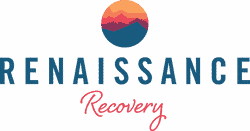COCAINE ADDICTION
Dangers of Cocaine Use & Abuse
Cocaine addiction is clinically described as a stimulant use disorder. While there are no medications to treat addiction to cocaine, there are several science-backed therapies that can be delivered in either inpatient or outpatient treatment centers, depending on the severity of your cocaine addiction.
Due to the psychologically addictive nature of stimulants like cocaine, treatment focuses primarily on behavioral interventions.

By: Renaissance Recovery
Clinically Reviewed by: Diana Vo, LMFT
Last Updated:
03/22/2024
Is Cocaine Addictive?
Cocaine is a powerfully addictive substance and central nervous system stimulant derived from the leaves of the coca plant. Powdered cocaine is typically snorted or injected, while freebase crack cocaine is smoked in glass pipes.
Regardless of the form cocaine comes in or the route of administration, addiction can develop rapidly. Habitual use of this Schedule II drug will cause you to crave the euphoric effects of the drug and feel compelled to use more cocaine, even in the face of adverse outcomes.
As tolerance to cocaine builds, you will require more of the drug to deliver the initial effects. Sustained cocaine abuse will cause changes to the function and structure of your brain, making it more challenging to resist cravings for cocaine, eventually leading to the development of a substance use disorder.
For most people abusing cocaine, psychological dependence on the drug becomes more problematic than any symptoms of physical withdrawal when they attempt to discontinue use of the drug.

How Addictive is Cocaine?
Cocaine is classified as a Schedule II controlled substance due to its high potential for substance abuse and addiction. This is primarily because of the euphoric high it produces, which is triggered by the accumulation of dopamine in the brain. Due to its fast-acting nature, you can become dependent on cocaine rapidly, making it challenging to quit.
One significant reason for cocaine abuse is positive reinforcement. Cocaine use prompts the release of dopamine in the brain, which stimulates pleasure centers and induces feelings of euphoria, confidence, alertness, and excitement in the brain cells. Individuals who desire these sensations become addicted to cocaine and seek to experience them repeatedly.
Another factor that makes cocaine especially addictive is the short-lived yet intense high produced by cocaine. After snorting the drug, cocaine’s effects take hold within 5-30 minutes and last for 20-30 minutes. Cocaine effects kick in even more rapidly when cocaine is smoked or injected and wear off quicker. Once the high subsides, people who abuse cocaine will crave the positive effects and may consume more, leading to tolerance build-up, withdrawal symptoms, increased frequency, and amount of cocaine use, all factors that can fuel the development of addiction.
Beyond this, cocaine is often adulterated with other addictive substances like fentanyl or meth, further intensifying positive reinforcement and promoting drug abuse, while at the same time increasing the risk of overdose.
Additionally, some people who develop a physical and psychological dependence may continue using the drug to avoid cocaine withdrawal symptoms. Quitting or being unable to acquire cocaine can lead to fatigue, anxiety, depression, irritability, paranoia, nightmares, and intense cravings, known as a crash. This experience can be uncomfortable, driving subsequent cocaine abuse to avoid it, leading to addiction.
How is Cocaine Used?
Cocaine can be used and abused in a number of different ways. The drug is most commonly snorted. However, injecting and smoking cocaine are also options, smoking is most often done with crack cocaine.
Source
Mixing Cocaine with Other Substances
Cocaine is a party drug and when taking other substances at parties, people often use more than one drug. This means that cocaine users will often mix cocaine with things, most notably alcohol. However, some of the other common forms of substance abuse while taking cocaine include heroin, opioids, and marijuana.
Cocaine and Alcohol
Alcohol is one of the most used substances among people who abuse cocaine. When mixed, the drugs create a new substance in the brain called cocaethylene. This substance has a longer half-life than cocaine, making the effects last longer than normal.
Cocaine and Opioids
Mixing cocaine with opioids is playing with fire, especially with the rise of dangerous synthetic opioids. In fact, in 2021, there were over 53,000 deaths from people using coke and opioids together, according to data from the National Institute on Drug Abuse.
Cocaine and Heroin
Another popular form of polysubstance abuse is mixing coke and heroin. This is known as “speedballing” and can be a potent and deadly combination, greatly increasing one’s risk of overdose and other symptoms of cocaine abuse.
Obviously mixing drugs like this can cause numerous adverse effects including a higher risk of overdose, an altered cocaine high, overall poor judgment, and more.

Fight Back Against Cocaine Addiction
Get evidence-based treatment to overcome cocaine addiction at Renaissance Recovery. Call our team now to learn more about the process.
Cocaine Addiction Statistics
According to estimates from NIDA (National Institute on Drug Abuse), 15% of adults in the United States have tried cocaine at least once. Like addiction to most drugs, cocaine abuse has been on the rise in the United States since the pandemic. Each year, SAMHSA (Substance Abuse and Mental Health Services Administration) publish data from NSDUH (National Survey on Drug Use and Health). Data from NSDUH 2019 indicates that 1 million U.S. adults had diagnosable cocaine addictions, increasing to 1.25 million (NSDUH 2020) and 1.4 million (NSDUH 2021).
NIDA’s 2021 Monitoring the Future Survey shows that 1.2% of 12th graders, 0.6% of 10th graders, and 0.2% of 8th graders reported past year use of the drug.
Drug overdose deaths involving coke have increased steadily, from 6,784 cocaine-related fatalities in 2014 to 24,486 in 2020.
Symptoms & Signs of Cocaine Addiction

Physical Symptoms
- Raised body temperature
- High energy levels
- Restlessness
- Excessive sweating
- Runny nose
- Persistent nosebleeds
- Dilated pupils
- Blurred vision
- Pronounced weight loss
- Diminished appetite
- Breathing problems
- Blacking out
- Cognitive impairment
- Hypertension
- Kidney damage
- Liver damage
- Insomnia
- Chest pain
- Tolerance to coke
- Increased risk of Heart attack
Psychological Symptoms
- Fleeting euphoria
- Mood swings
- Excessive confidence
- Impaired decision-making
- Depression
- Extreme mood swings
- Irritability
- Agitation
- Psychosis
Behavioral Symptoms
- Talking excessively
- Stealing money
- Trying to borrow money
- Dishonesty regarding activities
- Impulsive behavior
- Engaging in reckless behaviors
- Leaving drug paraphernalia around a living area
- Inability to stop or moderate cocaine use
- Socializing with friends who use cocaine
- Excessive time spent using cocaine
- Neglecting responsibilities
- Withdrawing from friends and family
- Losing interest in hobbies or interests
- Using other drugs in addition to coke
- Continuing to use cocaine in spite of adverse outcomes
Cocaine Overdose
Along with these dangerous psychological symptoms and physical signs of cocaine addiction, one of the effects of cocaine you must be aware of an increased risk factor of cocaine overdose.
Repeated exposure to this drug leads to a number of issues, including an increase in tolerance that can impact how cocaine affects the body and brain. This combined with mixing cocaine with other drugs can lead to some dangerous side effects.
Cocaine heavily impacts the cardiovascular system leading to high blood pressure, constricted blood vessels which can temporarily decrease blood supply, cardiac arrest, and more. Overall, these issues impact the whole body and when someone takes too much of this illicit drug, it can lead to an overdose which can result in coma, respiratory failure, and even death.


Fight Back Against Cocaine Addiction
Get evidence-based treatment to overcome cocaine addiction at Renaissance Recovery. Call our team now to learn more about the process.
Am I Addicted to Cocaine?
Cocaine drug addiction symptoms are listed in the latest edition of APA’s Diagnostic and Statistical Manual of Mental Disorders (DSM-5-TR).
Cocaine addiction, clinically known as stimulant use disorder, is diagnosed based on your response to these questions:
- Has tolerance to cocaine built so you need more of the drug to achieve the same effect?
- Have you tried and failed to moderate or discontinue cocaine use?
- Have you taken more cocaine than planned or used cocaine for longer than intended?
- Are you spending lots of time obtaining, using, and recovering from the effects of cocaine?
- Have you given up social engagements or regular activities in favor of drug abuse?
- Do you experience cravings for cocaine?
- Are you failing to meet commitments at home, work, or school due to your use of coke?
- Have you used cocaine in dangerous situations – when driving, for instance?
- Are you still using cocaine despite inflaming an existing physical or psychological issue?
- Do you continue to use cocaine despite your drug abuse causing problems in your relationships?
- Have you experienced withdrawal symptoms in the absence of cocaine?
Stimulant use disorder is diagnosed as follows:
- Mild stimulant use disorder: 2 to 3 symptoms
- Moderate stimulant use disorder: 4 to 5 symptoms
- Severe stimulant use disorder: 6 or more symptoms

What to Do When You’re Addicted to Cocaine
If you’re a cocaine user and worried you’ve become addicted to cocaine, it’s vital to seek professional treatment for cocaine addiction. Here are some steps you can take to get started:
Remember that overcoming cocaine addiction is a long-term process that requires commitment and patience. With the right support and treatment, it is possible to recover and live a fulfilling life free from addiction. Shortcut the process by reaching out to Renaissance Recovery’s cocaine addiction treatment program.
Get Help with Cocaine Addiction at Renaissance Recovery
In most cases of cocaine withdrawal, symptoms can be most effectively managed in a medical detox center. We can connect you with a suitable medical detox center near you, allowing you to purge the toxins and toxic by-products of the drug from your system with around-the-clock clinical care.
We specialize in the outpatient treatment of stimulant use disorders like coke addiction. We can also provide dual diagnosis treatment programs for those with co-occurring mental health disorders.
Through a personalized array of behavioral therapies including individual counseling, group counseling, psychotherapy, and contingency management, you can reclaim your life from cocaine addiction at Renaissance.
Our cocaine treatment program will offer clients access to numerous evidence-based treatment methods, dual diagnosis treatment to help with any underlying mental health issues as well as relapse prevention programs to help reduce a person’s risk of relapse.
Reach out to the friendly team today and learn how you can get treatment for cocaine addiction from our team of medical professionals.

